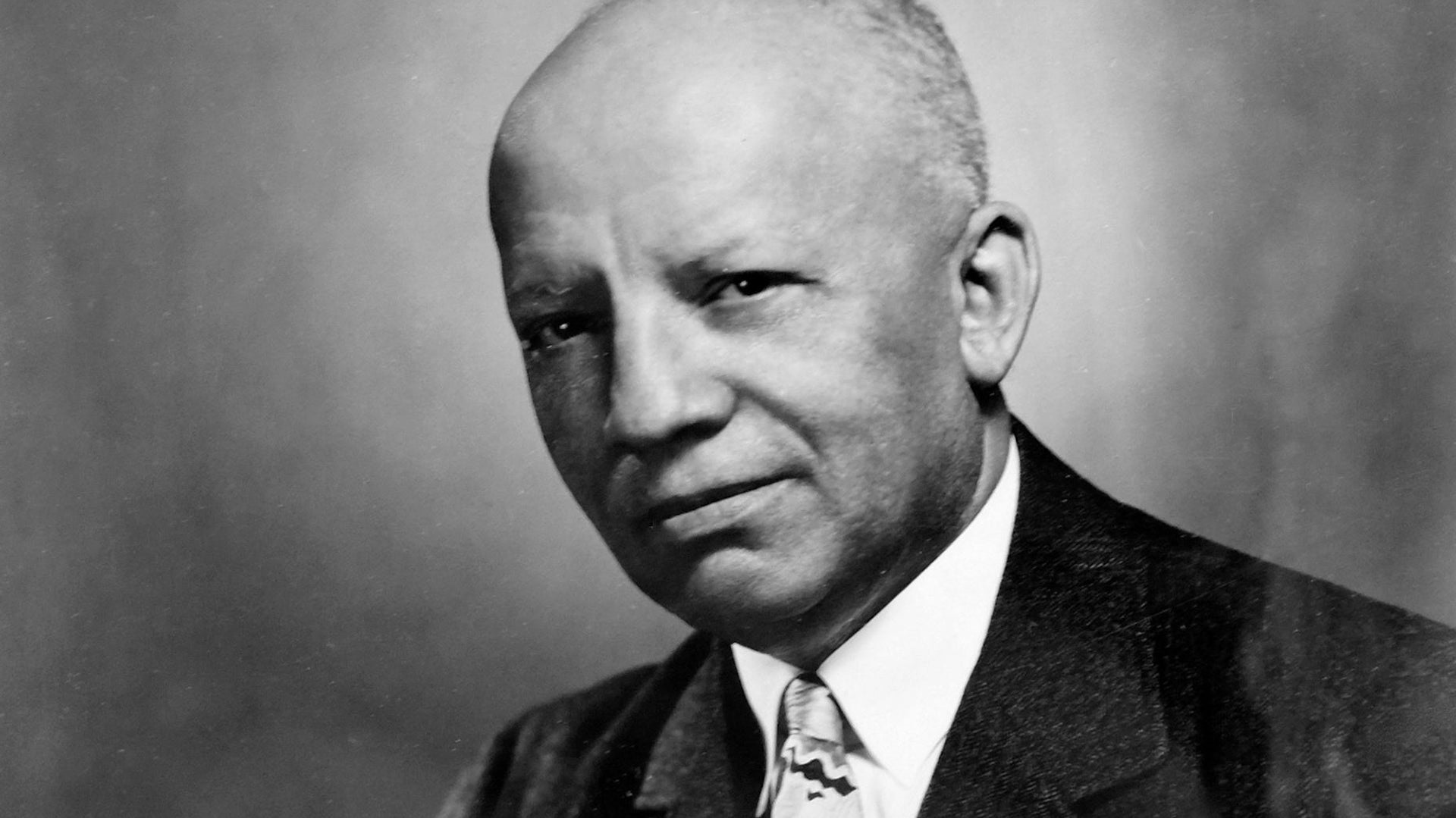Essential Black History Month Facts You Might Not Know

Black History Month is a dedicated time to honor and celebrate the rich history, culture, and contributions of African Americans. Established as a means to acknowledge and combat the historical and systemic erasure of Black achievements, this month-long observance plays a crucial role in fostering a broader understanding and appreciation of Black history within the larger American narrative. Celebrated every February, Black History Month serves as a powerful reminder of the enduring struggles and remarkable accomplishments that shape the legacy of African Americans.
Recognizing and understanding Black History Month is essential not only for acknowledging past injustices but also for promoting a more inclusive and equitable future. By delving into the narratives that have been overlooked or marginalized, we can cultivate a more comprehensive perspective on history that honors the diversity and complexity of human experiences. It also provides an opportunity to educate ourselves and others about the pivotal roles that Black individuals have played in shaping various facets of society, from the arts and sciences to politics and social justice movements.
The purpose of this blog is to share some lesser-known yet significant facts about Black History Month. While many are familiar with prominent figures like Martin Luther King Jr., Rosa Parks, and Harriet Tubman, numerous other influential Black leaders and events remain underrepresented in mainstream discussions. By bringing these hidden gems to light, we hope to enrich your understanding of Black history and inspire a deeper appreciation for the myriad contributions that African Americans have made—and continue to make—to society.
The Origin of Black History Month
The origins of Black History Month can be traced back to the pioneering work of Dr. Carter G. Woodson, a distinguished historian and scholar often referred to as the “Father of Black History.” In 1926, Dr. Woodson founded “Negro History Week” to ensure the acknowledgment and celebration of significant contributions by Black Americans. This week was strategically chosen to coincide with the birthdays of Abraham Lincoln and Frederick Douglass, figures who played pivotal roles in Black history.
Over time, the recognition and appreciation of Black history continued to grow, leading to the expansion of this commemorative week into a month-long celebration. In 1976, during the United States Bicentennial, this transition was officially recognized as Black History Month, broadening the scope and impact of the observance.
This expansion has allowed for a more in-depth exploration and acknowledgment of the rich and diverse history of African Americans, ensuring that these vital stories receive the attention they deserve throughout February and beyond.
Major Milestones in Black History Month Recognition
The recognition and significance of Black History Month have been marked by several major milestones throughout its history. Presidential recognitions and proclamations have played a pivotal role in amplifying the importance of this observance. In 1976, President Gerald Ford officially recognized Black History Month during the United States Bicentennial, urging Americans to “seize the opportunity to honor the too-often neglected accomplishments of Black Americans in every area of endeavor throughout our history.”
Subsequent presidents have continued this tradition, each issuing annual proclamations to emphasize the value of recognizing and celebrating Black history. The Association for the Study of African American Life and History (ASALH), founded by Dr. Carter G. Woodson, has also been instrumental in promoting Black History Month.
The ASALH has consistently provided educational materials, organized events, and advocated for the inclusion of African American history in the broader educational curriculum, ensuring that the narratives and achievements of Black Americans are acknowledged and celebrated year-round.
Influential Figures Beyond the Obvious
While figures like Martin Luther King Jr., Rosa Parks, and Harriet Tubman are rightly celebrated, it’s also essential to highlight lesser-known yet highly impactful Black leaders and activists. For example, Bayard Rustin, a key adviser to Dr. King, was instrumental in organizing the 1963 March on Washington. Rustin’s strategic planning and deep understanding of nonviolent protest were pivotal to the civil rights movement’s success.
Another important figure is Claudette Colvin, who, at the age of 15, refused to give up her seat on a segregated bus, months before Rosa Parks’ more famous act of defiance. Colvin’s bravery led to a landmark court case that helped dismantle bus segregation laws. These individuals, among many others, have made significant contributions to social justice, civil rights, and the ongoing fight for equality, showcasing the profound impact of their courage and dedication.
Cultural and Global Impact
Black History Month’s influence extends far beyond the United States, with various countries around the world adopting similar observances to celebrate and honor Black history and culture. In Canada, Black History Month is recognized in February and involves educational programs, cultural events, and community gatherings that highlight the contributions of Black Canadians.
Similarly, the United Kingdom celebrates Black History Month in October, focusing on the history and achievements of Black Britons and their impact on British society. These global celebrations underscore the cultural significance of Black history, illuminating the profound influence African diaspora communities have had across continents.
The international observance of Black History Month fosters a wider appreciation of the diversity and richness of Black cultural heritage, inspiring cross-cultural dialogue and understanding. This global acknowledgement helps to dispel stereotypes, combat racism, and promote a more inclusive world, affirming the universal relevance of Black history and its enduring legacy.
Educational Resources and Programs
Key educational initiatives have been pivotal in promoting awareness and understanding of Black history. Programs such as the National Museum of African American History and Culture’s educational outreach offer extensive resources, including digital exhibits, lesson plans, and interactive activities suitable for learners of all ages.
Additionally, educational platforms like the 1619 Project provide comprehensive materials that reframe American history through the lens of the African American experience. Numerous universities and educational institutions have developed specialized courses and certificate programs focusing on African American studies, offering in-depth explorations of Black history, culture, and contributions.
For those looking to delve deeper into the subject, resources such as the BlackPast.org website and the Schomburg Center for Research in Black Culture provide extensive archives, scholarly articles, and multimedia content that illuminate the rich and diverse tapestry of Black history and its lasting impact on society.
These programs and resources play a crucial role in fostering a more informed and inclusive understanding of history, encouraging continuous learning and appreciation for the contributions of Black individuals and communities.
Conclusion
Black History Month serves as a vital reminder of the rich and diverse contributions of Black individuals and communities to our shared history. By dedicating this time to highlight lesser-known facts and figures, we not only honor their achievements but also enrich our understanding of the past and its ongoing influence on the present. However, the importance of Black history should not be confined to just one month; it is a continuous journey of learning, exploration, and appreciation.
We encourage you to extend your exploration of Black history beyond February. Engage with the educational resources available, attend community events, and support organizations dedicated to celebrating Black heritage. Simple actions, such as visiting your local library or museum, participating in discussions, or even following educational programs online, can make a significant impact in celebrating and acknowledging Black history year-round.
Your participation is crucial. Share the stories, volunteer for events, or donate to causes that amplify Black voices and histories. Together, we can ensure that the contributions and narratives of Black individuals continue to be recognized, celebrated, and revered for generations to come. Let Black History Month be the beginning of a lifelong commitment to understanding and valuing the full spectrum of our collective history.
Additional Resources
Essential Black History Month Facts You Might Not Know
As we embrace the richness of Black history, it’s essential to delve deeper into resources that uncover hidden stories and offer comprehensive insights. Below is a curated list of books, documentaries, articles, and links to educational and cultural organizations that provide valuable information and perspectives on Black history and heritage.
Books
- “The Souls of Black Folk” by W.E.B. Du Bois – A seminal work in African American literature, examining the social and cultural issues faced by African Americans.
- “Stamped from the Beginning” by Ibram X. Kendi – An in-depth look at the history of racist ideas in America and their evolution over time.
- “The Warmth of Other Suns” by Isabel Wilkerson – A profoundly moving book chronicling the migration of African Americans from the South to the North and West.
- “The New Jim Crow” by Michelle Alexander – An eye-opening examination of the contemporary racial caste system in the U.S. criminal justice system.
- “Going to Meet the Man” by James Baldwin – A collection of short stories that explore the deep psychological effects of systemic racism.
Documentaries
- “13th” directed by Ava DuVernay – A powerful documentary exploring the intersection of race, justice, and mass incarceration in the United States.
- “Eyes on the Prize” – A comprehensive series documenting the civil rights movement from 1954 to 1985.
- “I Am Not Your Negro” – Based on James Baldwin’s unfinished manuscript, this film contemplates the history of racism in America.
- “Black Power Mixtape 1967-1975” – A visual anthology featuring archival footage of the Black Power Movement, combined with contemporary interviews.
- “When They See Us” directed by Ava DuVernay – A miniseries based on the true story of the Central Park Five, five young African Americans wrongfully convicted of a crime they did not commit.
Articles
- The Case for Reparations by Ta-Nehisi Coates – A compelling argument for reparations for African Americans.
- 1619 Project by The New York Times – A groundbreaking project that re-examines the legacy of slavery in the United States.
- The Forgotten Radical History of the March on Washington by William P. Jones – Insight into the often overlooked aspects of the March on Washington.
- How Capitalism Underdeveloped Black America by Manning Marable – An analysis of the impact of capitalism on Black communities.
- Why Juneteenth Matters by Annette Gordon-Reed – An article exploring the significance of Juneteenth in American history.
Educational and Cultural Organizations
- National Museum of African American History and Culture – Offers extensive resources, including digital exhibitions and educational programs.
- Schomburg Center for Research in Black Culture – A leading institution with rich archives and research materials on the global Black experience.
- [Association for the Study of African American Life and History (ASALH)](https://asalh.org/) – The organization that established Black History Month, providing numerous resources and publications.
- BlackPast.org – Features a comprehensive online reference center dedicated to the history of African Americans and the African diaspora.
- The 1619 Project – A Pulitzer Center initiative offering educational resources and programs centered on the legacy of slavery.
By exploring these resources, you’re not only enriching your understanding but also honoring the vast and powerful legacy of Black history. Let this journey of discovery inspire continuous learning and contribute to preserving and celebrating Black heritage year-round.



